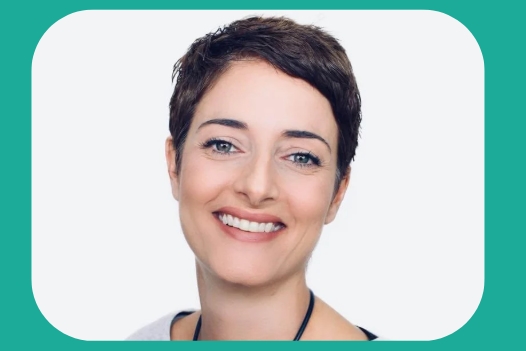New Paths for Women's Rights: Susana Pavlou, Director of the MIGS
 Susana Pavlou
Susana Pavlou
March 6, 2024
Interviewer: Louise Rosenbaum
Interviewee: Susana Pavlou
New Paths for Women’s Rights
Susana Pavlou is the Director of the Mediterranean Institute of Gender Studies (MIGS) since 2008. She is also the President of the Board of the Women Against Violence Europe (WAVE) Network. In Cyprus, Susana is the President of the Advisory for the Prevention and Combating of Violence in the Family. She has also served on many projects and studies commissioned by the European Institute for Gender Equality (EIGE), the European Parliament, and the UN Women. Susana is highly skilled in conducting research, policy development, and policy monitoring and evaluation, as she has dedicated almost 20 years to advance transnational projects concerning domestic violence, sexual violence and rape, female genital mutilation, and gender-based violence among adolescents.
Interview Transcript:
Louise: What has been your most inspiring work about your time here at the UN?
Susana: The most inspiring time was the opportunity to engage with delegations from the different member states and watch how advocacy at the UN works and how effective it can be.
Louise: You were at the UN this week; tell me more about your advocacy work while you were here.
Susana: At the UN this week, I have been advocating for women's rights and an end to violence against women in Cyprus in the framework of the Universal Periodic Review (UPR). In this context, I spoke at a side event organized by The Advocates. I had the opportunity to speak about the progress made in Cyprus and highlight the critical challenges in achieving women's rights.
.
Louise: Cyprus is up for periodic review; what are your primary recommendations?
Susana: The full implementation of legislation on violence against women and domestic violence, including the allocation of adequate funding and other resources, as well as the establishment of specialist support services, particularly for victims of sexual violence and rape. In addition, we are calling for the removal of all barriers to women's access to comprehensive abortion services in Cyprus.
Louise: How has your experience been partnering with The Advocates for Human Rights to protect women's rights?
Susana: Our experience has been extremely positive and inspiring. The Advocates have provided us with critical insights on engaging with UN human rights bodies and navigating the complexities of international diplomacy in promoting women's rights.
Louise: Why are women's issues so challenging to protect? Can you give me an example?
Susana: The reason it is so challenging to protect is because the realization of women's rights requires institutional and structural transformation. That transformation needs to go beyond the enactment of laws and policies and requires sustained political will to achieve not only gender equality on paper but also women's full access to their human rights. An example is how laws and policies meant to protect and prevent violence against women have failed to ensure women's safety and protection.
Louise: How do you navigate the complexities of international diplomacy in your work?
Susana: It is crucial to establish constructive working relationships with decision-makers at all levels while still maintaining our autonomy and critical voice. It is also essential to ensure that our work is based on robust evidence and that we represent women's lived experiences of discrimination and inequality.
Louise: How do you maintain your motivation and optimism in the face of the significant challenges tackled by the UN?
Susana: We maintain our motivation by celebrating our achievements and our impact on the ground, no matter how small that may seem. Another thing that motivates us is the global sisterhood and solidarity between women human rights defenders and how we manage to come together despite our many differences and experiences.
Louise: What is your relationship with WAVE?
Susana: My organization, MIGS, has been an active member of WAVE since 2006, and I have served on the board for the last four years. Recently, I was elected President of WAVE for a two-year term.
Louise: Given the complex nature of violence against women, can you provide an example of a challenging issue WAVE/MIGS/National Network has addressed and how?
Susana: Concerning MIGS, one of the most challenging issues we have been facing in recent years is the overt and insidious ways that the achievements in women's rights are being undermined and challenged. One example is how gender neutrality is impacting policies and practices of violence against women and girls, which denies the gendered dimension of violence and works to exclude the most vulnerable and marginalized women from protection and access to justice. I would also say that WAVE faces very similar challenges.
Louise: How would you describe the connections and collaborations MIGS has established through its network and with external partners? How do these relationships enhance your efforts to combat violence against women and promote gender equality?
Susana: Movement and coalition building have always been a priority for MIGS since its inception at the national, regional, and European levels. Only through strengthening our collective efforts can we be effective in achieving change. We do this by sharing information, coordinating our priorities, participating in joint advocacy efforts, and forming partnerships in various projects and initiatives.



